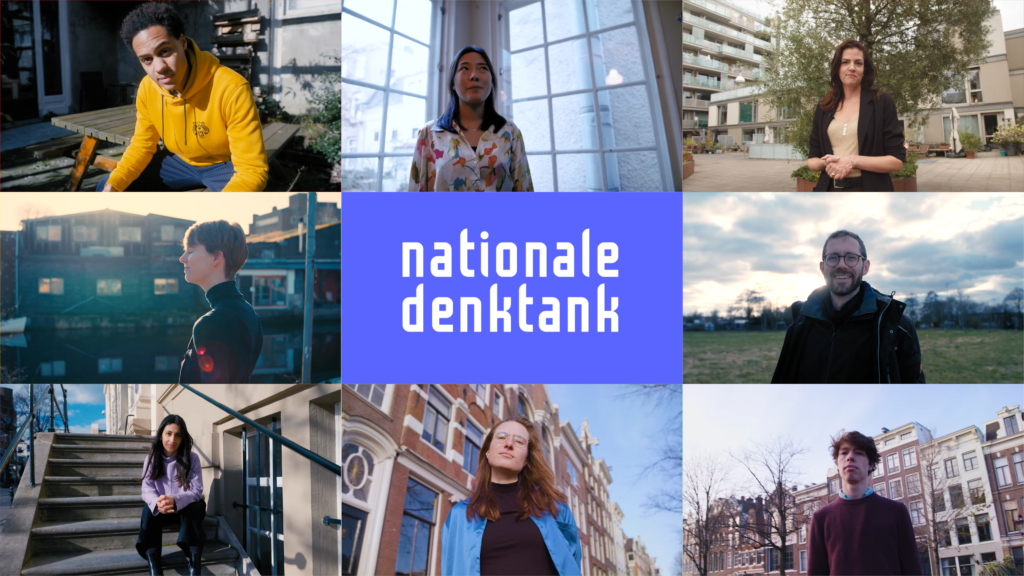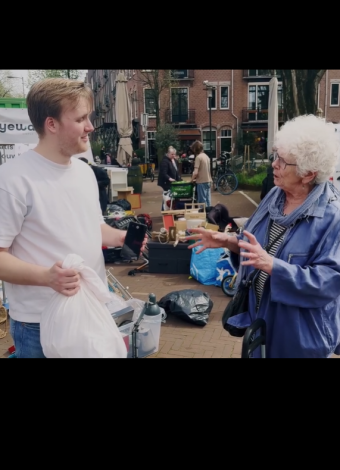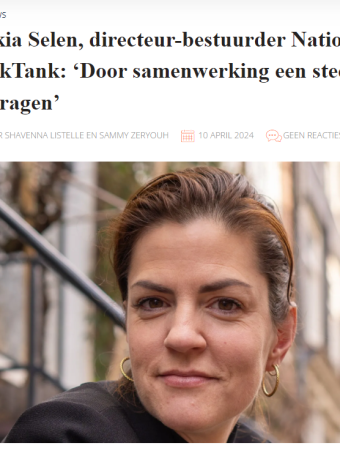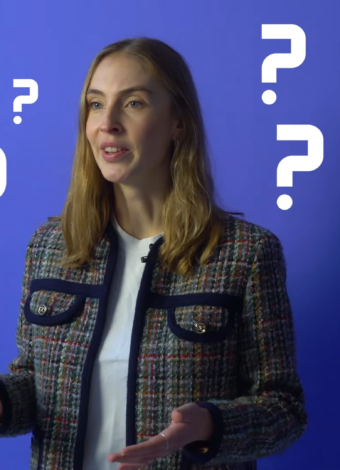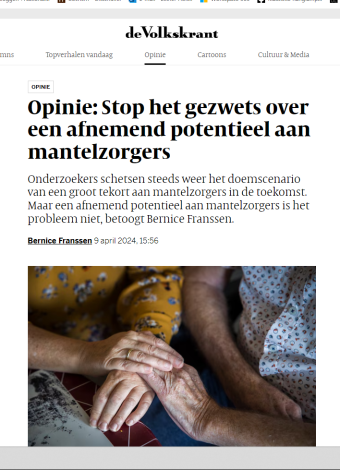
Met een frisse blik brengen we Nederland in beweging
Wij weten dat het beter kan in Nederland. Wij weten dat je met baanbrekende ideeën ver komt, al zijn de maatschappelijke problemen nog zo groot. Onbevangen en met frisse energie slaan we barsten in versleten patronen en verouderde systemen. We spreken de mensen om wie het gaat. De Nationale DenkTank is luisteren, analyseren en creëren. Creëren van wat? Oplossingen waar we met z’n allen onmiddellijk mee aan de slag kunnen!

De kracht van ons netwerk
De Nationale DenkTank is onafhankelijk en heeft een groot, gevarieerd en gemotiveerd netwerk. Samen met steeds weer nieuwe jonge denkers en doeners, onze alumni en onze partners, brengen we elk jaar partijen bij elkaar en bundelen we krachten. Partijen die, net als wij, geloven dat het beter kan in Nederland. Mensen en organisaties die verandering willen en innovatie omarmen.
Jaarlijks organiseren we een grote DenkTank van 4 maanden, meerdere mini-DenkTanks, events voor partners en alumni en laten van ons horen in het maatschappelijk debat.
